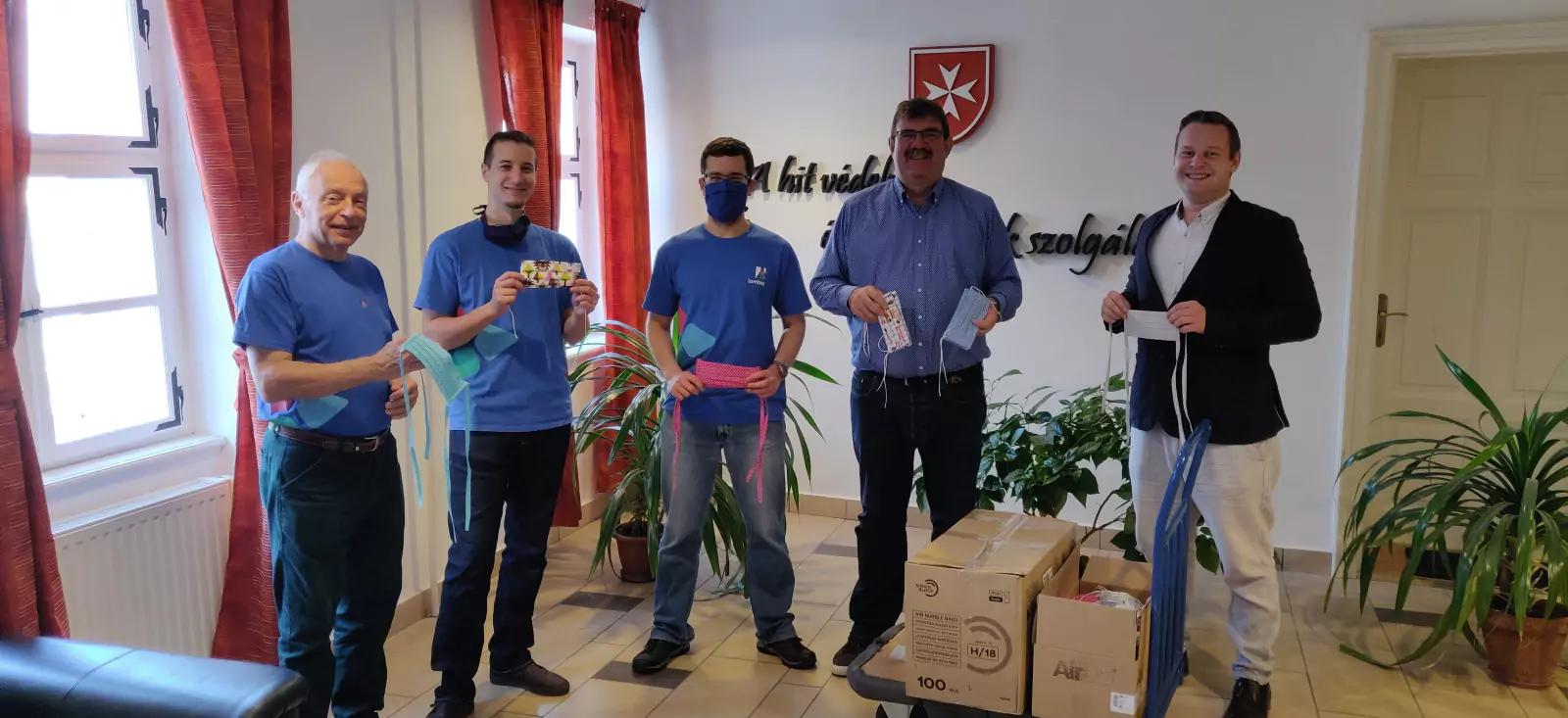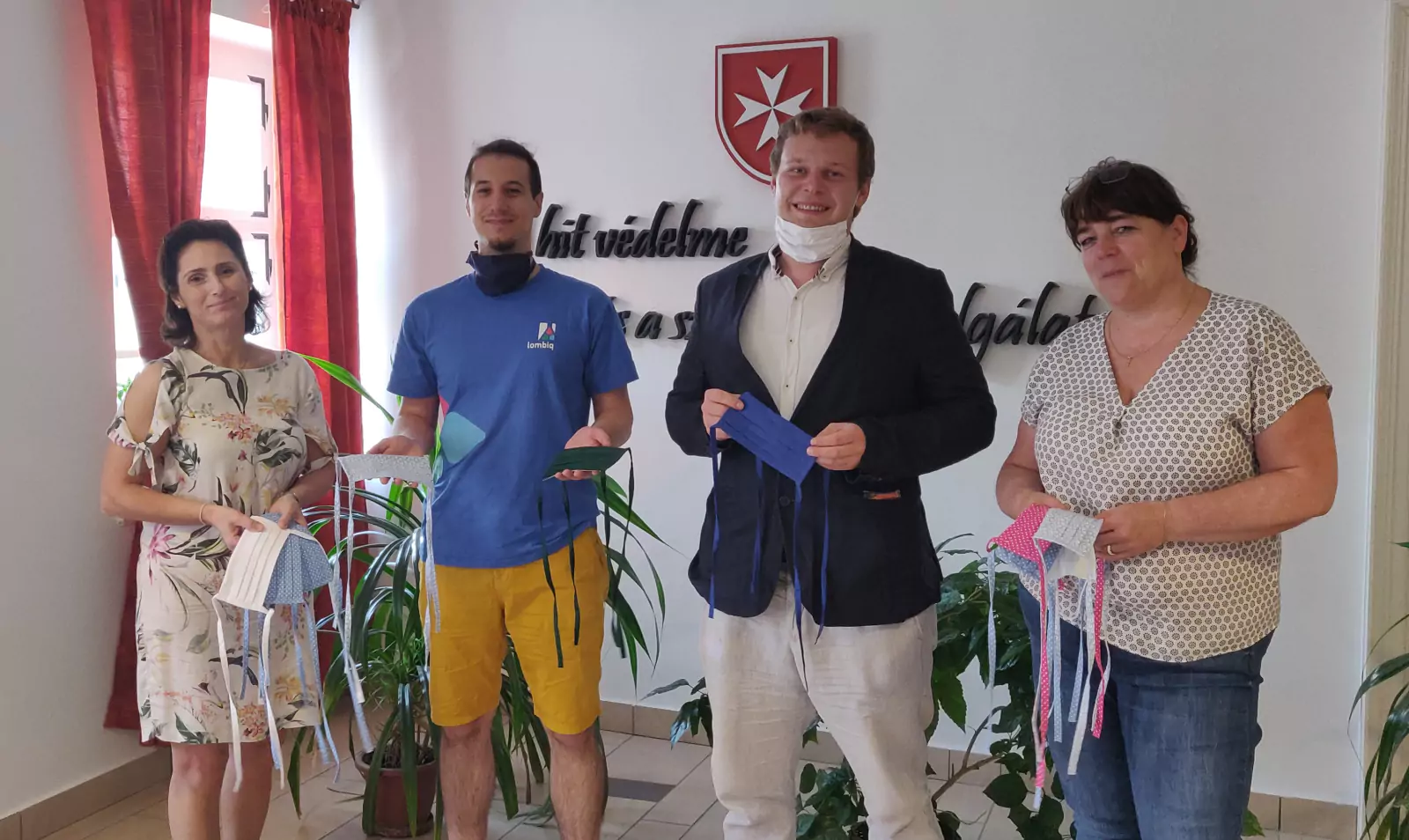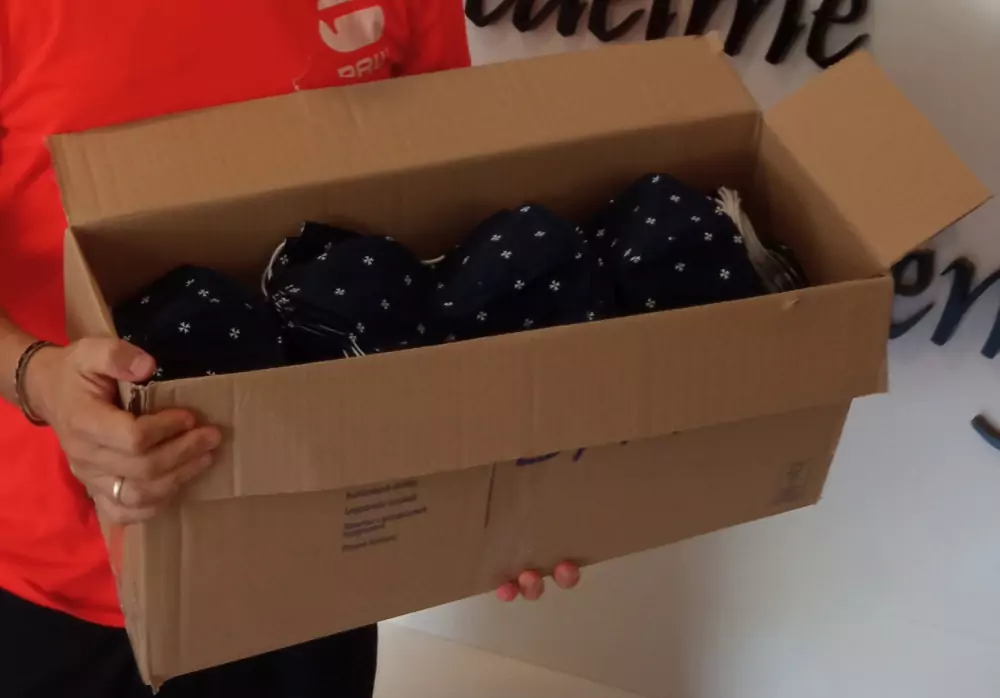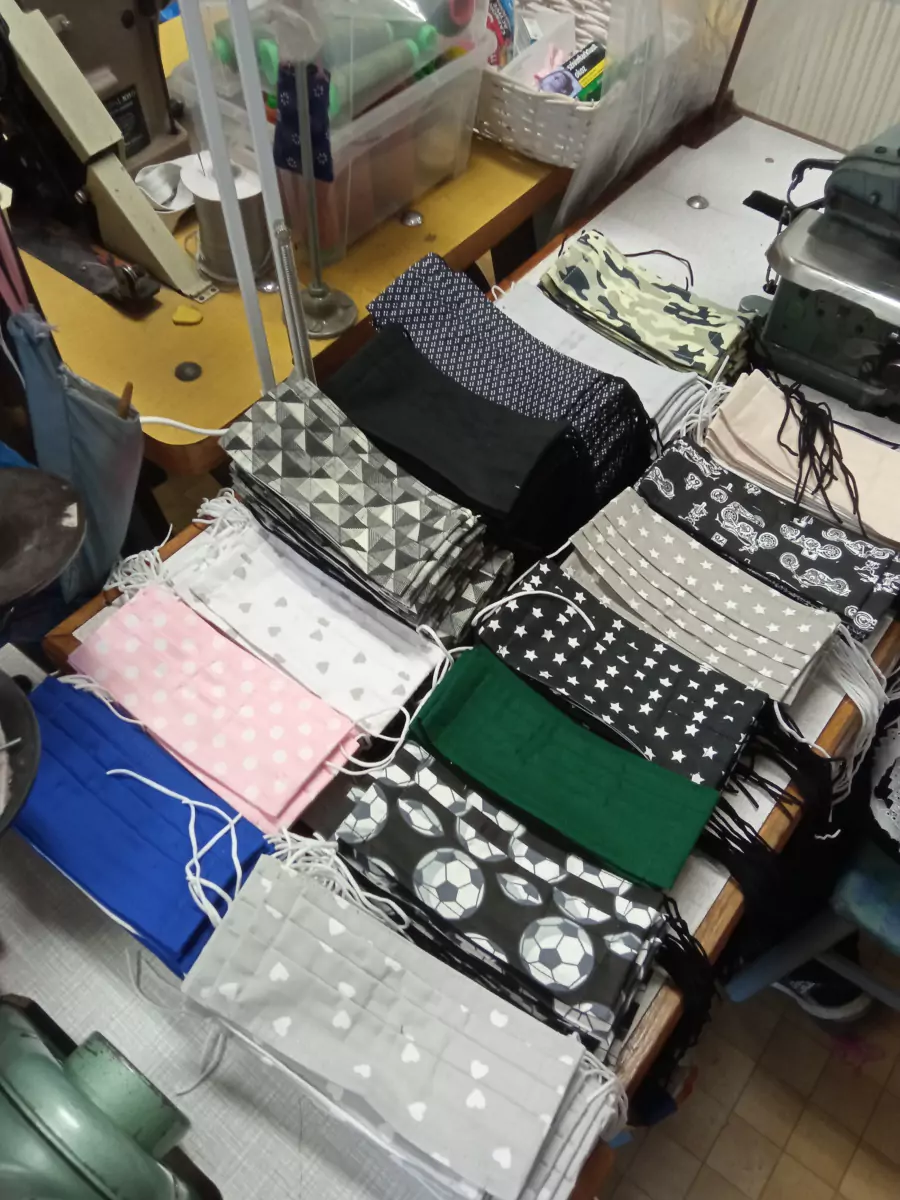4800 masks for the Malteses and how we dealt with the coronavirus pandemic until now
Since our last post on the pandemic, we're over at least the first wave of it here in Hungary, though globally it's spreading faster than ever and there's no real end in sight yet. As an organization largely unaffected in our day to day operation we wanted to help in our local and broader communities where we can. Let's see!
- We were among the first companies to offer our expertise in remote education and remote work pro bono to the Hungarian education system. It's fantastic to see that a large number of companies did the same for the call of the ICT Association of Hungary, as well as part of the "Digital Collaboration" managed by a government agency.
- While as a remote-first, distributed team we don't have much of a physical infrastructure we do have an office in the inner city of Budapest that a cleaning lady helps us keep tidy. What Microsoft did with similar workers at their huge campus we did on a tiny scale and kept her paid throughout us working fully remotely and the office being closed. If it goes well for us then it should also go well for everyone working with us too.
- We ramped up our open-source activities a lot. Open-source is the backbone of IT and without IT there can't be an economy, especially not if everybody is social distancing. Contributing to open-source makes everyone benefit, not just in the times of a pandemic.
- And finally, we've delivered 1000 reusable, washable textile face masks to the Hungarian Charity Service of the Order of Malta by joining forces with the artisan clothing small business Borsika Portéka (they provided the masks on cost price that we paid for). The Malteses are a 1000-year old, global charity organization and one of the strongest, most impactful ones in Hungary: They have thousands of employees and volunteers operating hospitals, retirement homes, schools, and being on the field in disadvantaged communities all across Hungary. These masks will be used by senior residents of retirement homes, who are at the most risk, and by children in schools of the Malteses. Our contributions to the Maltesers' activities certainly won't stop here. And our team members all got similar masks too, they're pretty fashionable :).


Our team, thankfully, stays completely healthy and to our knowledge, none of us got infected. Keep staying safe, everyone!
Update on 24.07.2020: We've similarly delivered a second batch of 1000 masks to the Malteses. Most of these will be used in three retirement homes: One in Budapest, one in the nearby town Páty, and one in the town of Pestszentlőrinc (the pages are mostly in Hungarian but you can check out pictures).

Update on 03.09.2020: And the third 1000 masks delivered! But we don't have a picture of this occasion, unfortunately :(.
Update on 06.02.2021: Another 400 masks delivered. What makes it special this time is that these bear the logo of the Malteses!

Update on 12.04.2021: Another 400 masks are there at the Malteses now. Sorry, no pictures this time.
Update on 05.08.2021: And another 400 masks were delivered, branded with the Maltese cross but this time in blue:

Update on 07.02.2022: Another 600 masks delivered!
